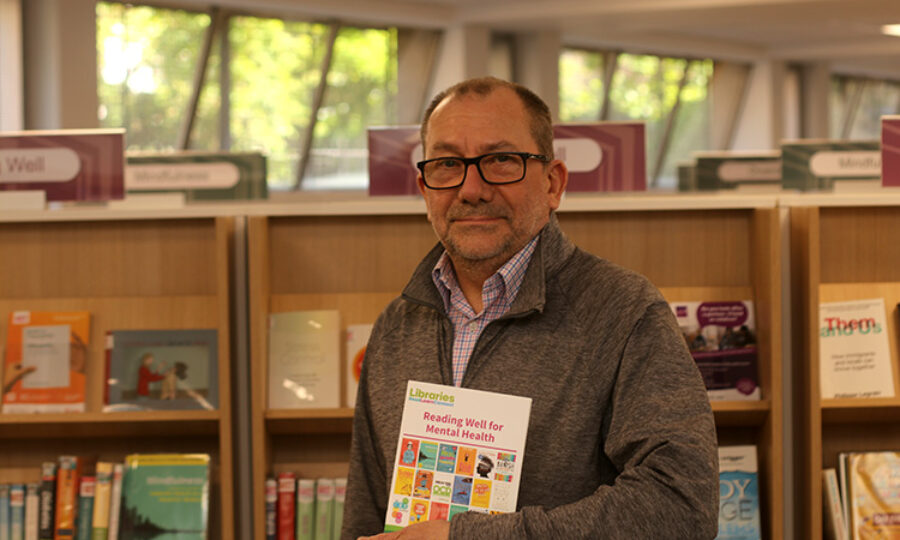Mind reader

Tony Brown of the library and heritage service on reading and mental health
IslingtonLife talks to Tony Brown, library and heritage service stock and reader development manager for Islington Council, about the links between reading and mental health
Can reading be good for your mental health?
There are a range of benefits of reading. For example, studies have shown that those who read for pleasure have higher levels of self-esteem and are better able to cope with difficult situations. Bibliotherapy (books as therapy) can also support people’s wellbeing and mental health. For example, self-help treatment programmes can benefit people with social anxiety disorder. One study about depression found that the use of cognitive behavioural therapy (CBT) through guided self-help, in combination with regular GP care, is much more effective than treatment as usual.
Research funded by Arts Council England in 2015 found that after looking a wide range of factors, library use is positively associated with wellbeing, with library users having higher life satisfaction, happiness and a sense of purpose in life.
The theme of Mental Health Awareness Week 2022 is loneliness. Can reading help with that?
Loneliness is a huge issue, and it has been made worse by the Covid-19 pandemic. People have had less meaningful contact with others, less informal and formal support, alongside increased anxiety. Loneliness can be hugely detrimental to people’s health and wellbeing – it can be as bad for your health as obesity or smoking.
We know that reading books can help people feel less lonely, which is why reading – on your own or in a group – is more important than ever. Shared reading groups can help people to feel calmer and more relaxed, as well as build a sense of shared community and common purpose. It can also ease some common symptoms of dementia. Taking part in library activities involving books, songs, rhymes and poetry has been found to have positive mental health benefits for parents, too.
Which books would you recommend to people who are struggling with poor mental health?
We work very closely with The Reading Agency – in particular on the Reading Well, which is delivered by The Reading Agency in partnership with Libraries Connected and funded by Arts Council England. Reading Well helps people to understand and manage their health and wellbeing by putting together reading lists of books which have been recommended by health experts and people who have struggled with their own mental health. The books are free to borrow from your local library.
There are currently three lists for mental health: reading well for mental health for adults; reading well for children and reading well for young people . A new list will launch in autumn this year, focusing on young people’s mental health after Covid. They’ve also put together book lists for people with long-term health issues, called ‘reading well for long-term conditions’ and a book list specifically for people living with dementia. All our libraries have copies of the books in these collections. For other booklists, have a look at the Islington Libraries website.
Are there any other benefits of reading?
Reading has long been known to help people relax – for example, it has a role in helping people get off to a good night’s sleep. It helps you to focus on what’s in front of you, acting as a distraction and helping to break anxiety ‘loops’. Reading for as little as six minutes is enough to reduce stress levels. It slows the heartbeat, relaxes your muscles, and alters your state of mind.
Reading for pleasure is more important for children’s development than their parents’ level of education. It’s a powerful factor when it comes to life achievement and has been shown to boost children’s literacy skills more than formal lessons. It also improves empathy, self-understanding, and the ability to understand your own and other people’s identities.
What are you reading at the moment?
I am reading Young Mungo, the latest novel by the Booker Prize winner Douglas Stuart. It’s about working-class life and the deeply moving story of two young men, Mungo and James. You can get it from your local library!
